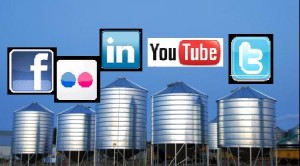Shrinkflation Redux
August 25th, 2023When times get tough there is always much coverage of the interesting concept of shrinkflation – where consumers get less for the same price. This can take many forms, such as fewer ounces in a similar size box or a lower count of items – all without changing the price. They count on the consumer not noticing, often with great effect.
But there is another type of shrinkflation that has been slowly seeping into the veins and that is the shrinkflation of benefits of rewards programs. These, often small, changes slowly erode the value proposition to the consumer through sneaky tactics like increasing ‘breakage’ – or the chance a consumer fails to qualify/earn rewards.
There are many examples of this, but Starbucks is perhaps the most egregious. It has been a multi-step, multi-year process which is slowly eroded away value from their starts program.
Example 1: Several years ago, you used to be able to redeem your birthday drink perk anytime in your birthday month. Then they changed it to the week of your birthday. And now it is only available literally on your birthday- no grace period.
Example 2: Over the same time Starbucks has increased the cost, and therefore decreased the value of the Stars, reward points, which you earn through spending. They didn’t adjust historical balances, so hard-earned points simply changed value overnight.
Example 3: Star expiration is another small feature that was added – 1 year from the date you earned them. The only reason to do this is to pull more value away from a consumer who might be saving up. The whole point is to encourage frequent visits and spending and to eliminate anything ‘owed’ to lower-value or less frequent customers.
Example 4: There used to be other ways to earn Stars – codes on retail bags of coffee. This was from when they first started selling beans at non-Starbucks stores. They’ve phased those out and now at-home stars are a thing of the past.
Example 5: They now offer Double star days – or even triple! However, these used to be automatic for anybody who visited. They have now changed it so that you have to opt in or else you don’t get the benefit. It’s about as pure of a “how can we get less consumers to redeem” play as you can get.
Example 6: Starbucks runs sweepstakes and games where they give away things (usually Stars) for playing. Typically, you earn plays via purchases, but you can also (by law) register without a purchase. Starbucks has slowly made these entries harder as well – going from requiring a simple entry form, to requiring answers to a multiple-choice question, to having several questions, to – most recently – requiring you to watch a 30-second Starbucks ad.
Update: November 2023 – The Starbucks for Life game is back, and they have now increased the required video view length to 2 minutes and 18 seconds. Additionally the questions went from multiple choice to open ended, such as “What does the ethical sourcing stamp mean?”. Check back next year for how else they are building walls.
I’m sure there are other’s I’m missing – the list of ways to take advantage of loyalty is nearly endless.
But this is not just a move that has been happening for large corporate brands. Unfortunately, it has also started infecting smaller businesses but that’s a post for a different time.
Now, I’d be remiss if I didn’t acknowledge that none of these businesses must have a loyalty program. However, the decision to be loyal to a program or a store is at least partially dependent on the value that store brings to me as a consumer. And the changing of the value of those rewards, slowly reducing their value, is a particularly insidious move by the company.
I believe this hit particularly hard because, unlike typical ‘shrinkflation’ items where I can just buy a different brand, loyalty points have no such fungibility. The points are captive, with little recourse for me as an individual.
I can take business elsewhere in the future, which I do, but that the earned value is eroded is completely out of my control. And this change, this decrease of consumer value without consumer consent, is an unfortunate development to witness.
So, I encourage you to realize that while loyalty can pay, it might pay less than you think. Or even less than what was promised.
This has been another Thought From the Cake Scraps.




